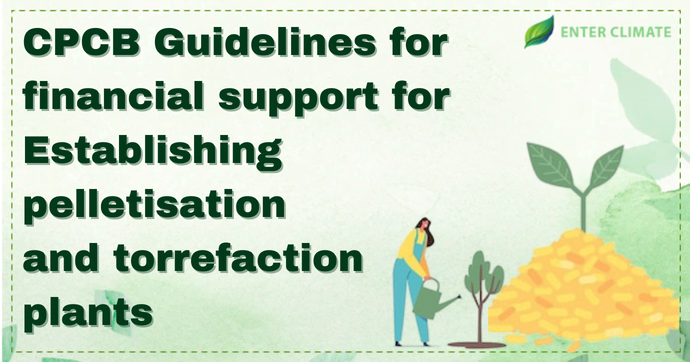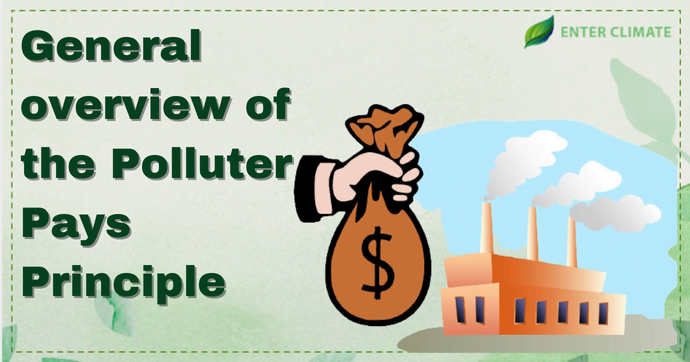Complete details regarding obtaining MoEF permission for the import of used tyres in India
 17 Oct, 2022
17 Oct, 2022 
Tyres are indispensable in the automotive sector, one of India’s quickly growing industries. They are durable, shockproof, bear the vehicle’s weight, and lead it in the right direction. Due to countless uses and exceptional properties, India also imported it from other nations besides manufacturing tyres within the country. But recently, the government-imposed ban (read it as restrictions) on the import. However, allowing some exceptions, the government permitted the import making the Ministry of Environment, Forest and Climate Change (MoEF&CC) the nodal authority. Thus, one must get permission from MoEF to import used tyres in India. Read on to know the entire process in detail.
Nodal authority
MoEF is the nodal and licensing authority in India to grant authorisation to import used tyres. The ministry has delegated the responsibility of labelling, necessary packing, quality check, fulfilling duties and complying with the occupier’s laws. Besides this, s/he should get permission from MoEF to import used tyres in India. Currently, the matter of waste tyres comes under Hazardous and Other Wastes (Management and Transboundary Movement) Rules, 2016, Environment (Protection) Rules 1986, Central Pollution Control Board’s (CPCB) guidelines for Environmentally Sound Management of End-of-Life Vehicles, 2016 and Standard Operating Procedure (SOP) issued by the MoEF&CC.
Market overview of import of used tyres in India
In 2020 the tyre market in India gathered 177 million units 2020. However, around 3 lakh tonnes of tyres are imported annually into the country from across the globe. The import of used tyres in India is mainly due to recycling and disposal. Thus, it won’t be wrong to say that the Indian tyre market is expected to flourish at a CAGR (Compound Annual Growth Rate) of 3.6% from 2022-2027.
Tyre manufacturers dominating the Indian Tyre Market
Renowned globally, the following names dominate the Indian tyre market:
- Bridgestone Corporation
- The Goodyear Tyre & Rubber Company
- CEAT Limited
- Apollo Tyres Limited
- MRF Limited
- JK Tyre & Industries Ltd
- Others
Ban (Restrictions) imposed on the import of used tyres in India
Before proceeding further, it is good to know why India imports used tyres. One of the reasons is they are used in the pyrolysis industry. Another reason is that these tyres are a steady source of supply. But, looking at the other side of the coin explains that importing used tyres in India for use in the pyrolysis industry leads to pollution. This also deteriorates the health of the workers. Considering the drawbacks and encouraging domestic companies under the mission like AatmaNirbhar Bharat, the Government of India imposed a ban (restriction) on the import of tyres in June 2020.
Under this, firms need a restricted license and permission from MoEF to import used tyres in India. This indicates that there can only be a limited import of tyres when the government grants the license.
Furthermore, a restriction was imposed on the import of tyres for buses, cars, trucks, and motorcycles. Also, both radial and tubeless tyres were prohibited from import. Additionally, since tyres come under the restricted category, the importer would require a license or permission from MoEF to import used tyres.
Guidelines stipulated by the Ministry of Environment, Forest and Climate Change for the import of used tyres
To allow some import of used tyres, the ministry has set a few compliances that must be adhered to. These rules are as follows –
- For a tyre import licence, traders must submit an undertaking stating that they will only buy those tyres sizes that are not made locally. Failing to do so, they will be penalised.
- The importer or exporter must apply for certification with MoEF in a particular format. This is done for exporting/importing recyclable/hazardous wastes to use as raw materials. Furthermore, it must be ensured that the material allowed must be fully insured for any accidental occurrence and transit. This must accompany by details of its clean-up operation and the sufficient facility to handle imported hazardous waste in the form of raw material.
- The Directorate General of Foreign Trade (DGFT) seeks to undertake from importers. Also, they are instructed to provide records for the past three years. Only 40% of their average trade volume in the past three years is allowed.
- To obtain permission from MoEFto import used tyres, one must comply with the Hazardous and Other Wastes (Management and Transboundary Movement) Rules, 2016.
- Besides, customs brokers, importers, shipping lines/agents, CFS custodians/terminal operators, logistics service providers and all other stakeholders must also comply with these rules.
- Classifiable under CTH 4004, parings, waste and rubber scrap (except hard rubber), and granules or powders derived therefrom are restricted goods. Thus, these need NOC (No Objection Certificate) from MoEF and the Department of Industrial Policy & Promotion. However, the import of used rubber tubes cut in two pieces and the import of used tyres with one cut in bead wire is free.
Note – Suggestion for the export or import of restricted items like used tyres is considered periodically by the EXIM Facilitation Committee of the DGFT. But, the decisions to allow or otherwise are taken with the consent of the concerned ministry.
- The wastes under Part B of Schedule III of the rules are prohibited and can’t be imported without a license from the DGFT and permission from MoEF.
- Obtaining permission from MoEFto import used tyres in India mandates complying with many other rules. The list of rules further states that para 2.31 of the Foreign Trade Policy has provisions for importing second-hand goods. According to the para, all second-hand goods other than capital goods are banned for import and are only importable against authorisation.
Note – Upon failing to comply with the conditions above, importers of used tyres abandon the consignments. This results in the collection of several containers of used tyres, posing a severe environmental threat.
- To ensure that India doesn’t become a dumping ground for hazardous waste, instructions are being given to all the shipping agents/lines under Sub Regulation (2) of Regulation 7 of Handling of Cargo in Customs Areas Regulations, 2009. This ensures that the consignments should be imported to India only if the consignor or consignee submits the requisite permission from the DGFT and the ministry before loading said goods on the ship.
- Failing to comply with guidelines and abandoning the consignment will take suitable action against shipping agents/lines.
Complete the process to get MoEF permission for the import of used tyres in India
- Step – 1
- The applicant must submit an online application along with the necessary documents at the official website of MoEF&CC.
- Step – 2
- The ministry’s Expert Committee (EC) will review the application and the attached documents. If any document is missing, it is informed by the EC.
- Step – 3
- The EC creates a batch and accordingly sends a notification for a virtual meeting with the applicant. The applicants are informed about the meeting via email.
- Step – 4
- Upon verifying the information, the EC may issue an order for a physical or virtual inspection of the unit’s premises.
- Step – 5
- The EC instructs the Central Pollution Control Board (CPCB) to conduct an inspection. The CPCB further delegates this responsibility to the State Pollution Control Board (SPCB).
- Step – 6
- Once the SPCB submits the inspection report to the CPCB, the board forwards it to the MoEF&CC. After this, the certificate for the import of used tyres is issued.
Documents Required to get Permission from MOEF for import of used tyres
- PAN card of the Authorised Person
- PAN Card of the establishment
- AOA
- MOA
- Agreement deed
- CTE
- CTO
- IEC
- GST
- Authorisation of unit
Consent To Operate (CTO) to get permission from MOEF for the import of used tyres in India
The Air and Water (Prevention) Acts mandate that importers get a CTO once the industry is instituted and is ready to operate. CTOisissued by the SPCB and valid for five years for the red category industry having the highest Pollution Index (PI). Also, it is valid for ten years for the orange category industry having considerable PI. CTO has a validity of 15 years for the green category industry with low PI.
Documents for Consent to Operate
- Rent agreement or lease agreement
- Electricity bill
- PAN Card
- Aadhaar card
- Health Trade License
- Municipality or Industry license for trading business
- Site Plan/layout
- GST certificate
- CA letter stating the financial breakup of the scrap trading business
- Authorisation letter
- Form-V, as per Rule 14 of the Environmental (Protection) Act
- Factory/Trade License
- Proof of registration of unit under Companies or LLP Act
- Consent to Establish
Consent to Establish to get permission from MOEF for import of used tyres in India
CTE is needed to be obtained before setting up any plant, industry or process. This consent is the primary clearance.
Documents for Consent to Establishment
- Detailed project report
- Site/Location plan
- Land documents
- Memorandum of Association (MOA)
NOC from MoEF (the Ministry of Environment, Forest & Climate Change)
The No Objection Certificate is again mandatory to get permission from the MoEF to import used tyres in India.
The documents required are as follows –
- KYC documents
- SIMS (Services under Import Management System) registration
- Consent Certificates
- Import Export Code (IEC)[1] to get permission from MOEF for the import of used tyres in India
- A 10-digit code, IEC, is required by anyone seeking to start an export/import business in India. The code comes with lifetime validity and is issued by the DGFT. It is also necessary to obtain permission from MoEF to import used tyres in India.
- Documents required for IEC registration
- PAN card of an individual or company
- Voter id/Aadhaar card/passport copy
- Photocopies of cancelled cheques of current bank accounts
- A self-addressed envelope for getting an IEC certificate by registered post
- Copy of Electricity bill or rent agreement of the premise
Conclusion
According to the experts, while the ban on the import of used tyres in India was an outcome of the economic turmoil due to the recession, it doesn’t seem sustainable in the long term. Hopefully, the government will revoke it or introduce measures like obtaining permission from MoEF to import used tyres in India.Therebybenefiting the country’s GDP and the Indian tyre market in many ways.
Read our Article: What are MOEF Regulations on E-waste Export From India?












